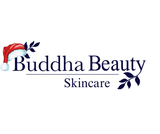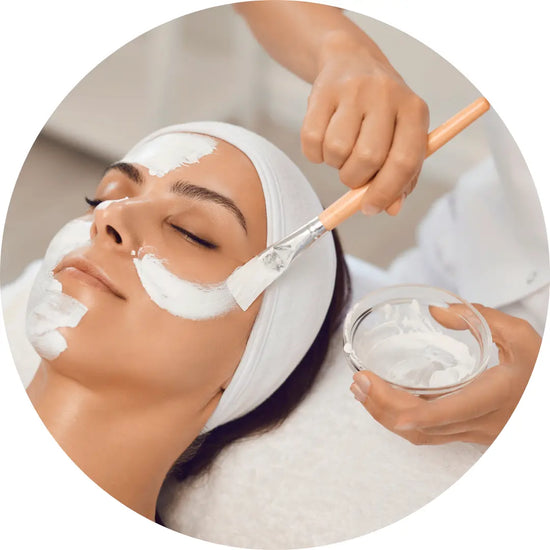Are Lip Balms Safe?
Our lip balms are generally considered safe for most people when used as directed. They are designed to provide moisture, protect the lips, and help prevent or treat chapped, dry, or cracked lips. However, there are a few considerations to keep in mind regarding the safety and effectiveness of lip balms:
Common Ingredients in Lip Balms
Lip balms often contain a variety of ingredients aimed at hydrating and protecting the lips:
Moisturising Agents: Our Ingredients provide a moisturising barrier that helps lock in moisture and keep the lips soft and hydrated.
Sun Protection: Some lip balms contain SPF (sun protection factor) to protect the lips from UV radiation, which can cause sunburn, aging, and skin cancer.
Potential Concerns and Safety Considerations
While our lip balms are generally safe, there are some potential concerns to be aware of:
Allergic Reactions: Some people may have allergic reactions to certain ingredients in lip balms. Symptoms of an allergic reaction may include redness, itching, swelling, or a rash on the lips.
Sensitivity to Fragrances and Flavors: Fragrances and artificial flavors can cause irritation or sensitivity in some individuals. For those with sensitive skin or known allergies, it’s advisable to use fragrance-free and flavor-free lip balms.
Irritants: Certain ingredients, which are often included for their cooling and soothing effects, can actually irritate the lips and cause dryness or a tingling sensation in some people.
Choosing a Safe Lip Balm
To choose a safe and effective lip balm, consider the following tips:
Read the Ingredient List: Look for lip balms with natural, nourishing ingredients. These ingredients are known for their moisturising and protective properties.
Opt for Fragrance-Free: If you have sensitive skin or are prone to allergies, choose a lip balm that is fragrance-free and flavor-free to minimise the risk of irritation.
Look for SPF Protection: If you spend time outdoors, choose a lip balm with SPF protection to shield your lips from harmful UV rays. Lips can burn just like the rest of your skin, so sun protection is important.
Avoid Potential Irritants: If you have experienced irritation from certain ingredients in the past, avoid lip balms containing menthol, camphor, phenol, or salicylic acid.
Using Lip Balm Safely
Use As Needed: Apply our lip balm as needed, especially in dry or cold weather, to keep your lips moisturised and prevent chapping. Overuse is generally not harmful but could lead to dependence, where your lips feel dry without frequent application.
Apply to Clean Lips: For best results, apply our lip balm to clean lips. This helps to lock in moisture and keep your lips protected.
Avoid Sharing: Sharing lip balms can transfer bacteria and viruses, potentially leading to infections. Use your own lip balm to maintain hygiene.
Special Considerations for Children
Child-Safe Ingredients: If using lip balm on children, opt for products with child-safe, non-toxic ingredients. Avoid lip balms with strong flavors, fragrances, or colorants, which could encourage ingestion.
Supervision: Supervise young children when using lip balm to ensure they do not ingest large amounts or apply it improperly.
Do Lip Balms Work?
Yes,Our lip balms do work effectively for most people, providing several key benefits to help maintain the health and appearance of the lips. They are designed to moisturise, protect, and soothe the lips, which are prone to dryness and chapping due to their thin skin and exposure to environmental elements. Here’s how lip balms work and the benefits they offer:
How Lip Balms Work
Lip balms function primarily by creating a protective barrier over the lips. This barrier helps lock in moisture, preventing the lips from becoming dry and chapped. Here’s a closer look at how the ingredients in lip balms contribute to their effectiveness:
Moisturising Agents: Lip balms contain ingredients that provide moisture and create a protective barrier. These emollients soften the lips and help prevent moisture loss by sealing in hydration.
Humectants: Some lip balms contain humectants like hyaluronic acid, which attract moisture from the air and help draw it into the skin. This adds an extra layer of hydration, keeping the lips plump and supple.
Healing and Soothing Ingredients: Many lip balms include ingredients with healing properties. These ingredients help soothe irritated skin, promote healing, and reduce inflammation.
Benefits of Using Lip Balm
Prevents and Treats Dryness: One of the primary functions of lip balm is to prevent dryness and treat chapped lips. By moisturising and creating a barrier, lip balm helps to keep the lips soft and smooth, reducing the risk of cracking and peeling.
Protects Against Environmental Damage: Lips are exposed to various environmental factors, such as wind, cold, heat, and UV radiation. Lip balms with SPF protect the lips from UV rays, preventing sunburn and potential long-term damage. The barrier also protects against harsh weather conditions that can cause the lips to dry out.
Soothes and Heals Chapped Lips: Lip balms provide immediate relief to chapped, cracked lips by delivering soothing and healing ingredients directly to the affected area. This can help reduce pain, discomfort, and redness while promoting faster healing.
Enhances Appearance: Regular use of lip balm can improve the overall appearance of the lips, making them look healthier, fuller, and more hydrated. Some lip balms also come with a tint or gloss, providing a subtle color or shine to enhance the lips' natural beauty.
When Lip Balms Might Not Work as Well
While lip balms are effective for most people, there are some cases where they might not work as well:
Allergic Reactions or Sensitivities: If a lip balm contains ingredients that you are allergic to or sensitive to (such as certain fragrances, flavors, or preservatives), it might cause irritation rather than relief. Choosing hypoallergenic and fragrance-free lip balms can help avoid this issue.
Underlying Conditions: Chronic dry lips can sometimes be a sign of underlying conditions, such as eczema, allergies, or vitamin deficiencies. If you find that lip balm is not providing relief, it may be worth consulting a healthcare professional to explore other causes.
Habitual Lip Licking: Constantly licking your lips can actually lead to more dryness, as saliva evaporates quickly and removes natural oils from the lips. Using lip balm may help break this habit by keeping the lips moisturized and reducing the urge to lick.
Tips for Getting the Most Out of Lip Balm
Choose the Right Product: Look for lip balms that contain nourishing, hydrating ingredients like natural oils. Avoid balms with high alcohol content, which can dry out the lips if you have sensitive skin.
Apply Regularly: For best results, apply lip balm regularly throughout the day, especially before bed, in cold or dry weather, and before exposure to the sun. This helps maintain hydration and protection.
Use Lip Balm with SPF: If you spend time outdoors, choose a lip balm with SPF protection to shield your lips from UV damage. The skin on the lips is thin and sensitive to sunburn, making SPF lip balm a valuable addition to your skincare routine.
Avoid Sharing: To prevent the spread of germs and bacteria, avoid sharing lip balms with others. Use your own lip balm and keep it clean by capping it securely when not in use.
Are Lip Balms Liquids ?
Our lip balms are generally not considered liquids; they are typically classified as semi-solids. Here’s why lip balms are not classified as liquids and what you need to know about their consistency and packaging:
Consistency and Form
Solid or Semi-Solid: Most lip balms come in a solid or semi-solid form, often in a stick or tube that allows them to be applied directly to the lips. The consistency is firm enough to hold its shape at room temperature, but it softens upon contact with the lips to allow for smooth application.
Travel Regulations
Airline Regulations: According to airline security agencies, lip balms are typically not classified as liquids, gels, or aerosols. Therefore, they are usually not subject to the liquid rule for carry-on bags.
Storage and Use
Temperature Sensitivity: Although our lip balms are solid at room temperature, they can soften or melt in high temperatures, such as in a hot car or direct sunlight. If a lip balm melts, it may temporarily become more liquid-like, but it will solidify again once cooled. This temporary state does not reclassify the product as a liquid.
Reapplication: Lip balms are designed to be applied as needed, and their semi-solid form allows for convenient application without spilling or leaking, making them easy to carry and use.
Are Lip Balms Edible?
While lip balms are not intended to be eaten, most lip balms are generally safe if a small amount is accidentally ingested. This is because lip balms are designed to be applied to the lips, an area that can come into contact with the mouth and food. However, they are not classified as food items, and intentional consumption should be avoided. Here are some important considerations regarding the edibility and safety of lip balms:
Flavored Lip Balms
Taste Appeal: Our lip balms are flavored to enhance the user experience. These flavors can make our lip balms taste good, but it is important to remember that they are not meant to be eaten. The flavorings are used to make the product more enjoyable to use, not for consumption.
Allergic Reactions: Some individuals may have allergies or sensitivities to specific flavoring agents or ingredients. If you experience any signs of an allergic reaction, such as swelling, redness, or itching, discontinue use immediately.
Accidental Ingestion
Small Amounts Are Generally Safe: If you accidentally ingest a small amount of lip balm, such as licking your lips after applying, it is typically not a cause for concern. The ingredients are chosen with incidental ingestion in mind and are unlikely to cause harm in small quantities.
Large Quantities: Intentionally consuming large quantities of lip balm is not recommended and could lead to digestive upset or other health issues, depending on the ingredients.
Children and Pets
Keep Out of Reach of Children: While lip balms are generally safe, it’s important to keep them out of reach of young children who may try to eat them. Some ingredients, like essential oils, could cause adverse effects if ingested in larger amounts.
Pet Safety: Lip balms should also be kept away from pets, especially those containing ingredients that are toxic to animals. If a pet ingests lip balm, contact a veterinarian for advice.













